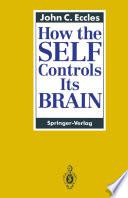
He here refers to his proposal in "A unitary hypothesis of mind-brain interaction in the cerebral cortex" (1990); published in Proceedings of the Royal Society B 240, p. 433 - 451
How the Self Controls Its Brain (1994)
Context: The hypothesis has been proposed that all mental events and experiences, in fact the whole of the outer and inner sensory experiences, are a composite of elemental or unitary mental experiences at all levels of intensity. Each of these mental units is reciprocally linked in some unitary manner to a dendron … Appropriately we name these proposed mental units 'psychons.' Psychons are not perceptual paths to experiences. They are the experiences in all their diversity and uniqueness. There could be millions of psychons each linked uniquely to the millions of dendrons. It is hypothesized that it is the very nature of psychons to link together in providing a unified experience.
